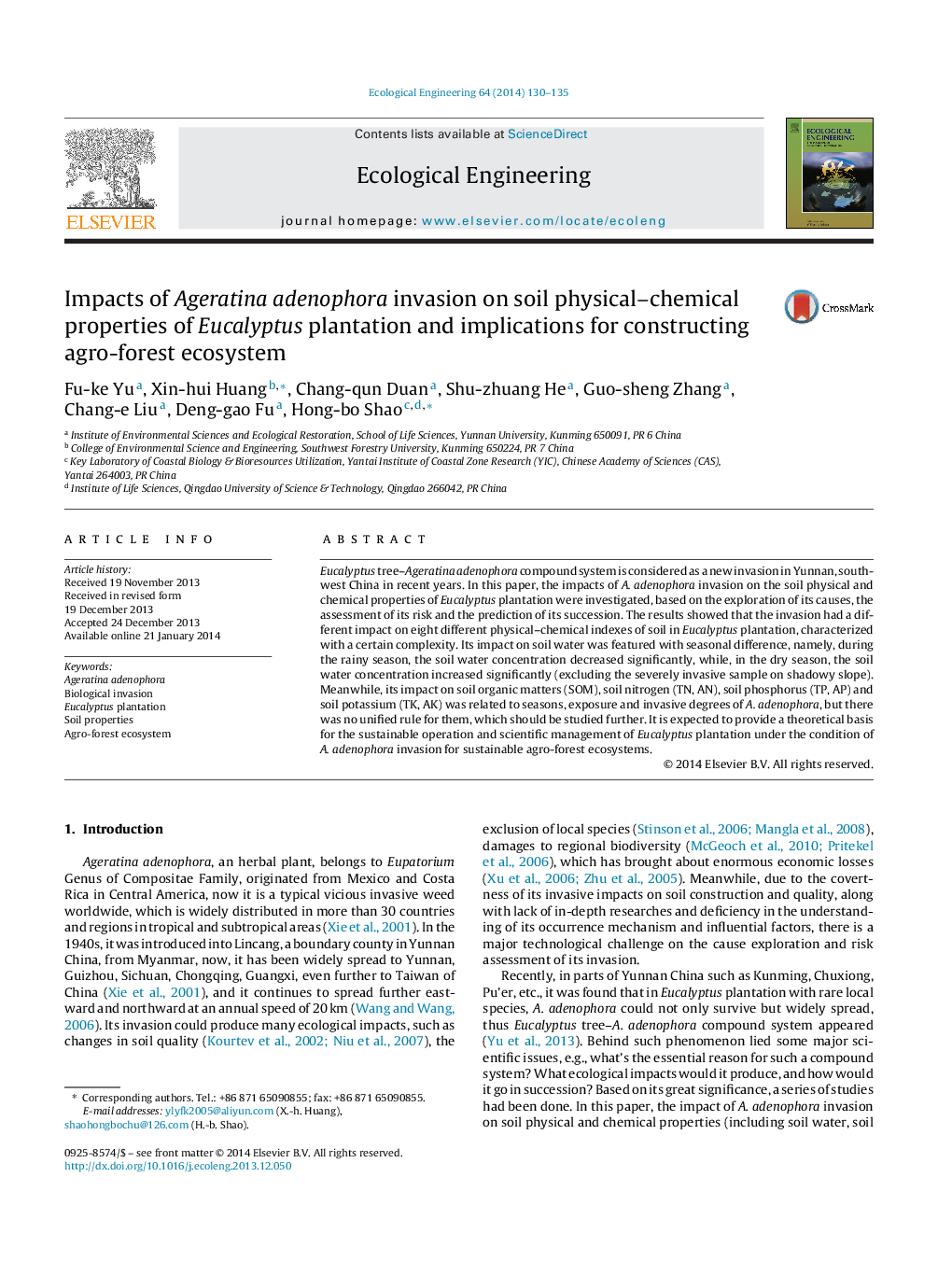| Article ID | Journal | Published Year | Pages | File Type |
|---|---|---|---|---|
| 4389571 | Ecological Engineering | 2014 | 6 Pages |
Eucalyptus tree–Ageratina adenophora compound system is considered as a new invasion in Yunnan, southwest China in recent years. In this paper, the impacts of A. adenophora invasion on the soil physical and chemical properties of Eucalyptus plantation were investigated, based on the exploration of its causes, the assessment of its risk and the prediction of its succession. The results showed that the invasion had a different impact on eight different physical–chemical indexes of soil in Eucalyptus plantation, characterized with a certain complexity. Its impact on soil water was featured with seasonal difference, namely, during the rainy season, the soil water concentration decreased significantly, while, in the dry season, the soil water concentration increased significantly (excluding the severely invasive sample on shadowy slope). Meanwhile, its impact on soil organic matters (SOM), soil nitrogen (TN, AN), soil phosphorus (TP, AP) and soil potassium (TK, AK) was related to seasons, exposure and invasive degrees of A. adenophora, but there was no unified rule for them, which should be studied further. It is expected to provide a theoretical basis for the sustainable operation and scientific management of Eucalyptus plantation under the condition of A. adenophora invasion for sustainable agro-forest ecosystems.
